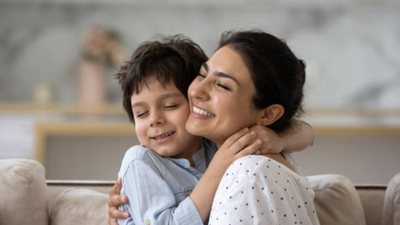ARTICLE AD BOX

Parenting is an around-the-clock responsibility, one that comes with no formal training and requires all hands on deck. Some days it feels manageable, and on others it can feel like the most challenging role you’ve ever taken on.
Yet, unlike most jobs, parenting holds a unique and profound weight: it involves not just supporting a child’s day-to-day functioning, but shaping the individuals who will become tomorrow’s generation.What does it mean to raise emotionally resilient children in today’s overstimulated world? A world where violence is plentiful, living conditions are deplorable, climate change is rampant, and kindness is depleting.
Now, more than ever in the history of humankind, we require individuals rooted in goodwill, grit, and humaneness. As a therapist, I have been asked this question numerous times. How does one instil the qualities of compassion and resilience within one’s child? The answer, I’m afraid, is not something groundbreaking or astonishing but rather a simple one. It means being present parents to your children, being attuned to the needs of your children, not only their developmental needs but also their emotional and social needs.
Parenting is not a simple act of upkeep, like tending to the routine mechanics of a machine. It is closer to cultivating a living garden whose seeds carry the promise of seasons we may never see. It goes beyond feeding, clothing, and checking in; it is the quiet, intentional shaping of a soul learning how to belong to the world. Parents aren’t just raising children who can move through life, but they are crafting the architects of tomorrow, the storytellers of futures yet unwritten.
Emotional resilience within children isn’t built in isolation, but instead, it is formed in the emotional climate that surrounds them, an ethos shaped by the steady presence of caregivers who help them navigate feelings that would otherwise feel too big. Children build emotional resilience most effectively in relationships with caregivers who can offer stable co-regulation and model healthy emotional responses. To quote Dr Jug from the movie ‘Dear Zindagi’- “If you can't cry freely, how can you laugh freely?”Parents today often become so focused on raising winners that they unintentionally overlook something far more important: teaching their children how to face and move through failure.
In trying so hard to ensure success, they forget that children also need guidance in handling moments when things don’t go their way. And when children aren’t trusted with their own struggles, they can grow into adults who don’t trust themselves either.It becomes essential, then, for parents to support not by constantly stepping in or doing things for their children, but by allowing them to try, to experiment, and yes, to fail, sometimes even fail miserably.
Because it’s in these moments of falling and getting back up that resilience is built. Watching children make mistakes, struggle, and learn from the outcome is one of the most powerful gifts adults can offer. It shows children that failure isn’t something to fear, but something they are capable of navigating with courage and confidence.Very often, as a therapist, I hear this conundrum in the therapy room: the idea that we must raise “tough” children because the world is going to be harsh, and therefore we shouldn’t be too soft with them.
But I think it’s quite the contrary. Children need the softness of their parents. They need the warmth, the gentleness, and the emotional safety that only a caregiver can offer to face the harshness and unpredictability of the real world.
It’s the softness at home that becomes their inner strength outside. Only when a child knows there is a comforting hand over their head, a place to come back to, a person who holds them with warmth, do they feel confident enough to step out into the world and be their true self. So no, it isn’t about being harsh with your kids. It’s about giving them the kind of emotional grounding that allows them to grow into their most honest, authentic self. Aakanksha Singh, psychologist

 1 hour ago
4
1 hour ago
4








 English (US) ·
English (US) ·